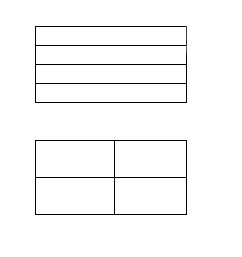I didn't understand - but I get it now.
If you buy fabric from a bolt, you always tell the clerk how much you want (yards or meters). If you say "I'd like a quarter meter of this", the clerk will measure 1/4 meter along the edge of the fabric and cut from there. You get a longish strip that is quite narrow.
With a "fat quarter", however, what they do is cut a half meter from the bolt and then slice down the middle of that so that you end up with a wider piece (as opposed to a thin strip).
The diagram below shows 2 ways of cutting a piece into fourths. The top one shows the thin 1/4 strips. The second one shows the cutting layout of a "fat quarter." The area of each cut is the same - but with fat quarters you have more options, especially if you happen to be working with a fabric that has a large print.

To further illustrate, have a look at this bit of fabric that I found on a "clearance" table at one of my favorite fabric stores:

As you can see, if a quarter meter (or yard) of this were cut straight across, you'd surely not get any of the full blocks of roses in the piece. But with a "fat quarter", you'd get a good bit of the design, probably 4 or more of the rose groupings.
So much for the technical explanation. In my next post I will share with you the madness that gets into your blood once you understand the idea behind "fat quarters" (and "fat eighths", for that matter).

No comments:
Post a Comment